‘I think we’ve only seen the tip of the iceberg’: How a group of female gymnasts exposed decades of sexual abuse
In 2018, former USA Gymnastics doctor Larry Nassar was given two life sentences for sexual abuse. As Netflix launches documentary ‘Athlete A’, Sabrina Barr speaks to the first woman to publicly accuse Nassar about courage, healing and collective power

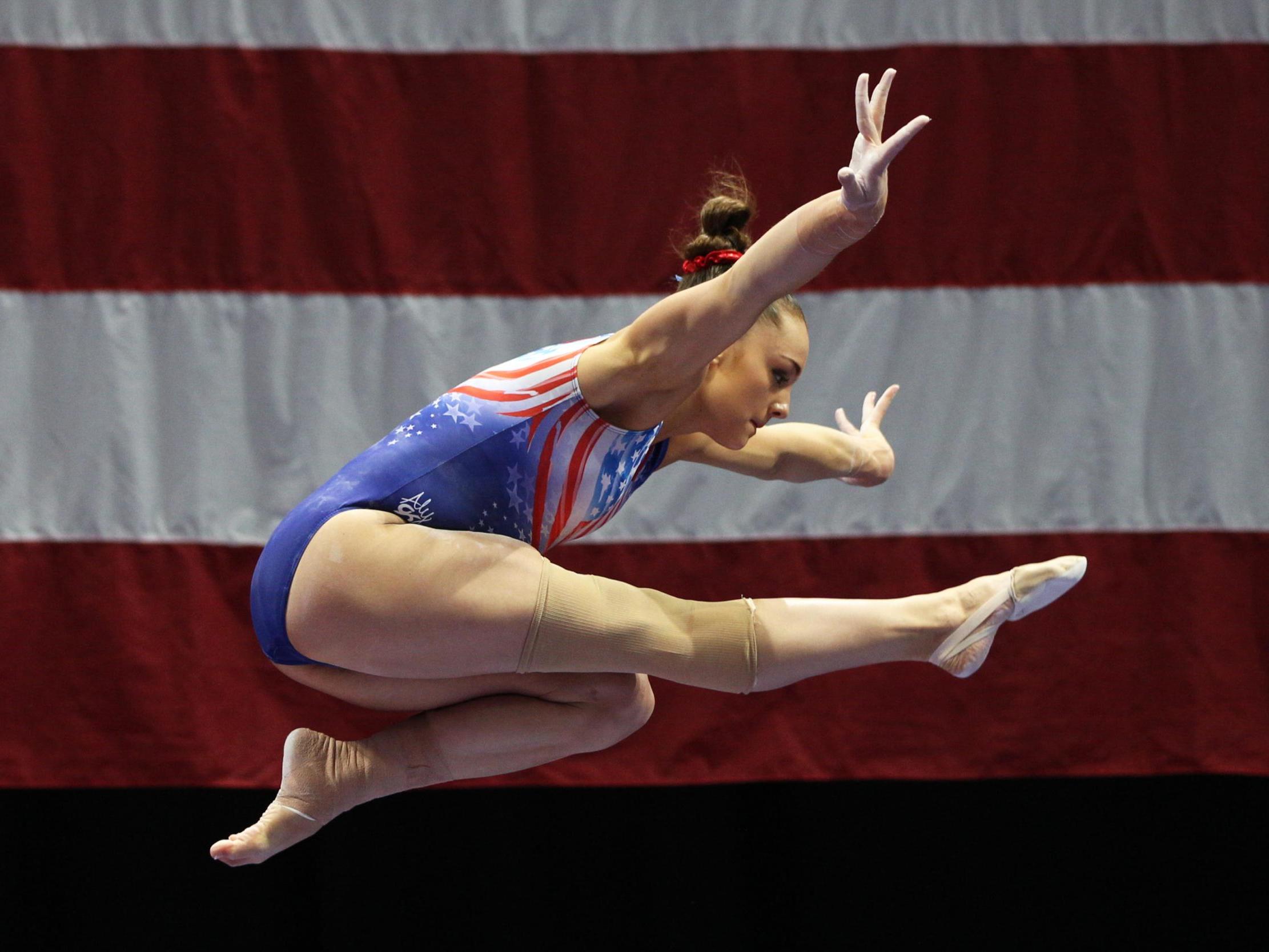
Your support helps us to tell the story
From reproductive rights to climate change to Big Tech, The Independent is on the ground when the story is developing. Whether it's investigating the financials of Elon Musk's pro-Trump PAC or producing our latest documentary, 'The A Word', which shines a light on the American women fighting for reproductive rights, we know how important it is to parse out the facts from the messaging.
At such a critical moment in US history, we need reporters on the ground. Your donation allows us to keep sending journalists to speak to both sides of the story.
The Independent is trusted by Americans across the entire political spectrum. And unlike many other quality news outlets, we choose not to lock Americans out of our reporting and analysis with paywalls. We believe quality journalism should be available to everyone, paid for by those who can afford it.
Your support makes all the difference.The date is 4 August 2016. The Indianapolis Star, a daily newspaper, has published an article titled “A blind eye to sex abuse: How USA Gymnastics protected coaches over kids”. The article reveals in thorough detail how top executives at USA Gymnastics had – for years – brushed allegations of sexual abuse under the carpet by following an unlawful policy of not alerting the authorities unless an allegation was heard directly from a victim or their parent. The publication of the article would set off a chain of events that would result in the unravelling of a sexual abuse scandal. Beginning with an email from Rachael Denhollander.
When 31-year-old Denhollander, a former teenage gymnast, came across the article, it affirmed everything she’d known since she was 15 years old, but never felt empowered to act upon. “I was right,” she thought, as she emailed the paper with the name of a doctor – Larry Nassar – who worked for USA gymnastics from 1996 to 2014 – and had sexually abused her.
As Denhollander sent her email, she wasn’t sure it would gain the attention she hoped for. “I really didn’t have any sense of whether or not it would be successful,” the lawyer tells me over the phone from her home in the US. “Really, I felt like it was a shot in the dark.” A month later, Denhollander’s story was in print, alongside that of another survivor, named only as Jane Doe.
But the pair were not alone; the Nassar story would become one of a collective voice – more than 500 women eventually came forward to publicly accuse him of abuse. A new Netflix documentary, Athlete A, depicts not only the sexual trauma, but also the culture of physical and emotional neglect that enabled Nassar to go unchecked. Throughout the one hour and 40 minute report, the filmmakers speak to several former gymnasts who shared their stories, the journalists who fought tooth and nail to reveal the truth and an attorney committed to achieving justice.
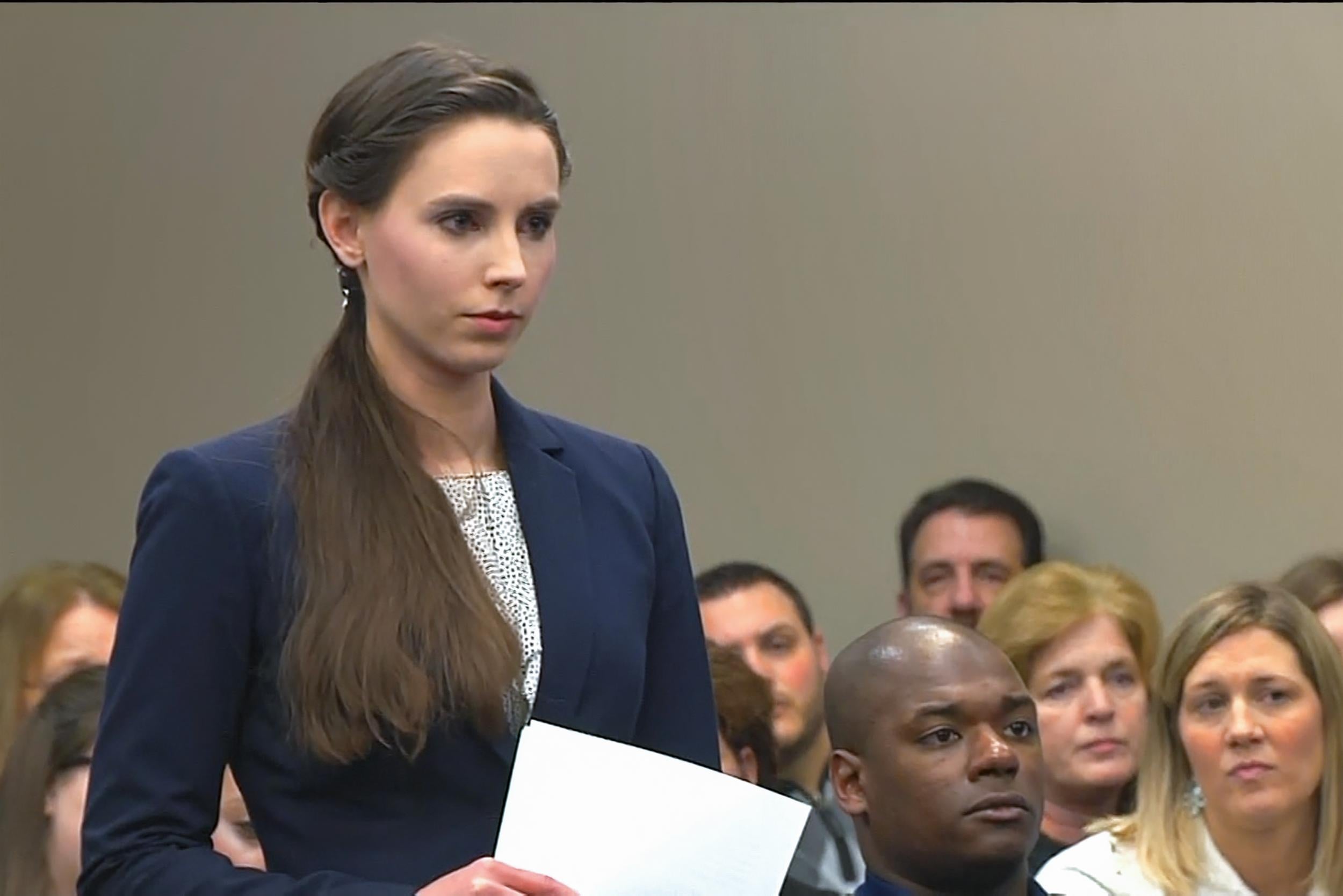
Directors Bonni Cohen and Jon Shenk, whose previous work includes a documentary on teenage sexual assault, Audrie and Daisy, decided to make Athlete A in 2017 after they were approached by Jennifer Sey, a former gymnast and author of Chalked Up, a book about the realities of elite gymnastics. As Cohen and Shenk embarked on creating the film, the world was months away from learning of the sexual abuse allegations against convicted rapist Harvey Weinstein.
“There certainly was a sense that we were making this film in the greater context of the inspiring work that had been going on in the #MeToo movement,” Shenk says. “We certainly recognised as documentary filmmakers that there was an incredible kind of cultural force occurring which is that when many women speak up together there’s kind of an undeniable power that helps to shift the balance of power away from the abusers and then gives the survivors a real voice in the conversation.”
I don’t think we have any idea how bad it is and I don’t think we ever will
The film features interviews with several former gymnasts, including Sey, Olympian Jamie Dantzscher and Maggie Nichols, who was omitted from the 2016 US Olympic gymnastics team shortly after reporting the abuse she experienced at the hands of Nassar to USA Gymnastics. The documentary is named after Nichols, who was referred to as “Athlete A” by USA Gymnastics after submitting her report. Although sexual abuse survivors are often given anonymity by law, Cohen says she believes the title was a result of the organisation trying to make whistleblowers anonymous, and therefore unheard.
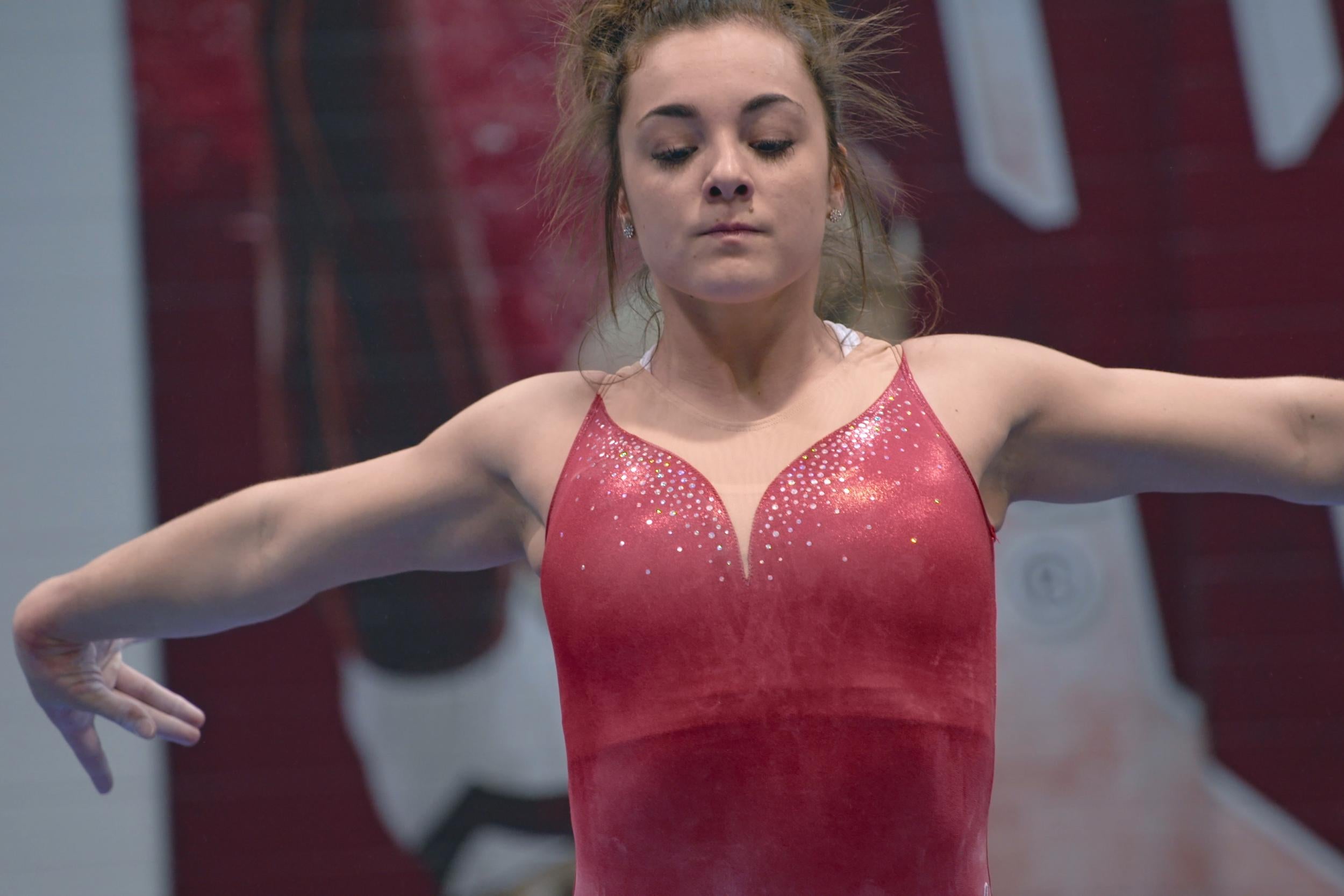
“We just thought it was so interesting, so symbolic,” Cohen says. “It says so much about USA Gymnastics that when Maggie Nichols and then subsequently Aly Raisman and McKayla Maroney came forward … instead of writing into the files with their names they wrote Athletes A, B and C. This spoke volumes to how they have treated girls for decades. The title spoke to so much more than just Maggie Nichols, but in fact a movement of anonymity and lack of humanity that has plagued this institution.”
One of the most poignant moments of filming for Cohen was when the filmmakers sat down with Dantzscher, who won a bronze team Olympic medal at the 2000 Olympics. Despite the renown that came with being a world-class athlete, it is only now, having spoken out against Nassar, that Dantzscher feels “proud to be an Olympian”, as she is able to use her platform for good. “The interview process was quite therapeutic for her, in the sense that she was able to put pieces of the story together for the first time,” Cohen says.
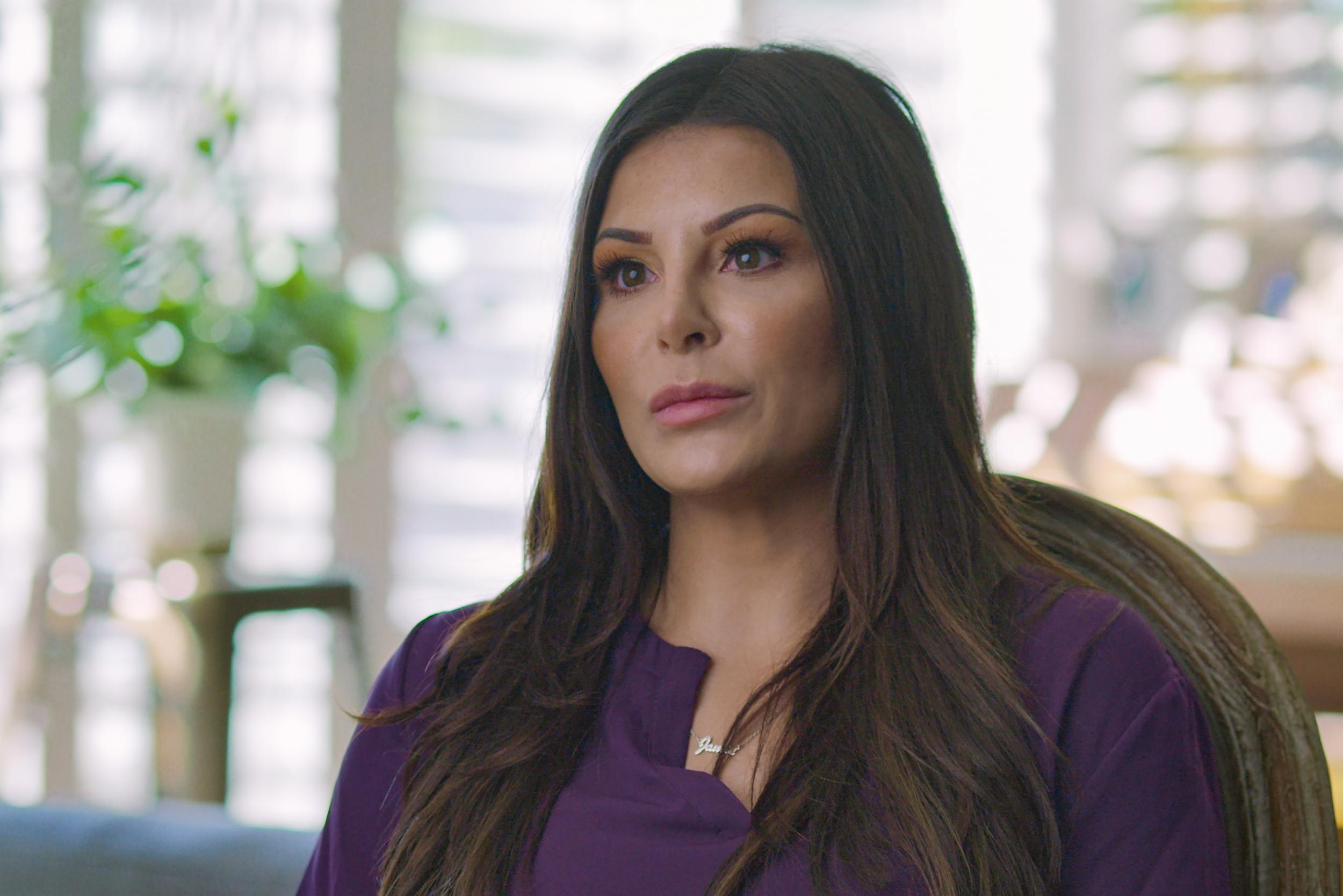
The same could not be said for Denhollander. As the first woman to publicly accuse Nassar of sexual abuse, and one who is legally trained, Denhollander is viewed by many as a leader of the movement. However, Denhollander says she would never wish for anyone else to ever be put in the position that she was in, or under the extent of the media scrutiny she was subject to.
“I feel differently speaking publicly than I think a lot of survivors do, and I think that’s because I had to do it for so long,” Denhollander says. “In a lot of ways, I felt like it was worse than the abuse itself, because you have an audience at that point. There’s no privacy left, there’s no dignity left, there’s no ability to protect yourself at all anymore.”
One voice couldn’t do this. One voice didn’t do all of this. It was everybody
Despite this, seeing a positive outcome has provided some comfort to Denhollander, who says there is “a lot of value and healing” in both hearing testimonies from other women in court, and in the “collective team effort” that it took to put Nassar behind bars. “It was all of us,” she says.
In July 2017, Nassar pled guilty to three federal charges of child pornography. Four months later, he pled guilty to charges of sexual assault. In January 2018 he was sentenced to prison for up to 175 years. A month later, he was sentenced to jail for an additional 40 to 125 years after pleading guilty to sexual misconduct with three children under the age of 16. During the sentencing hearing in January 2018, more than 150 women made impact statements in court.
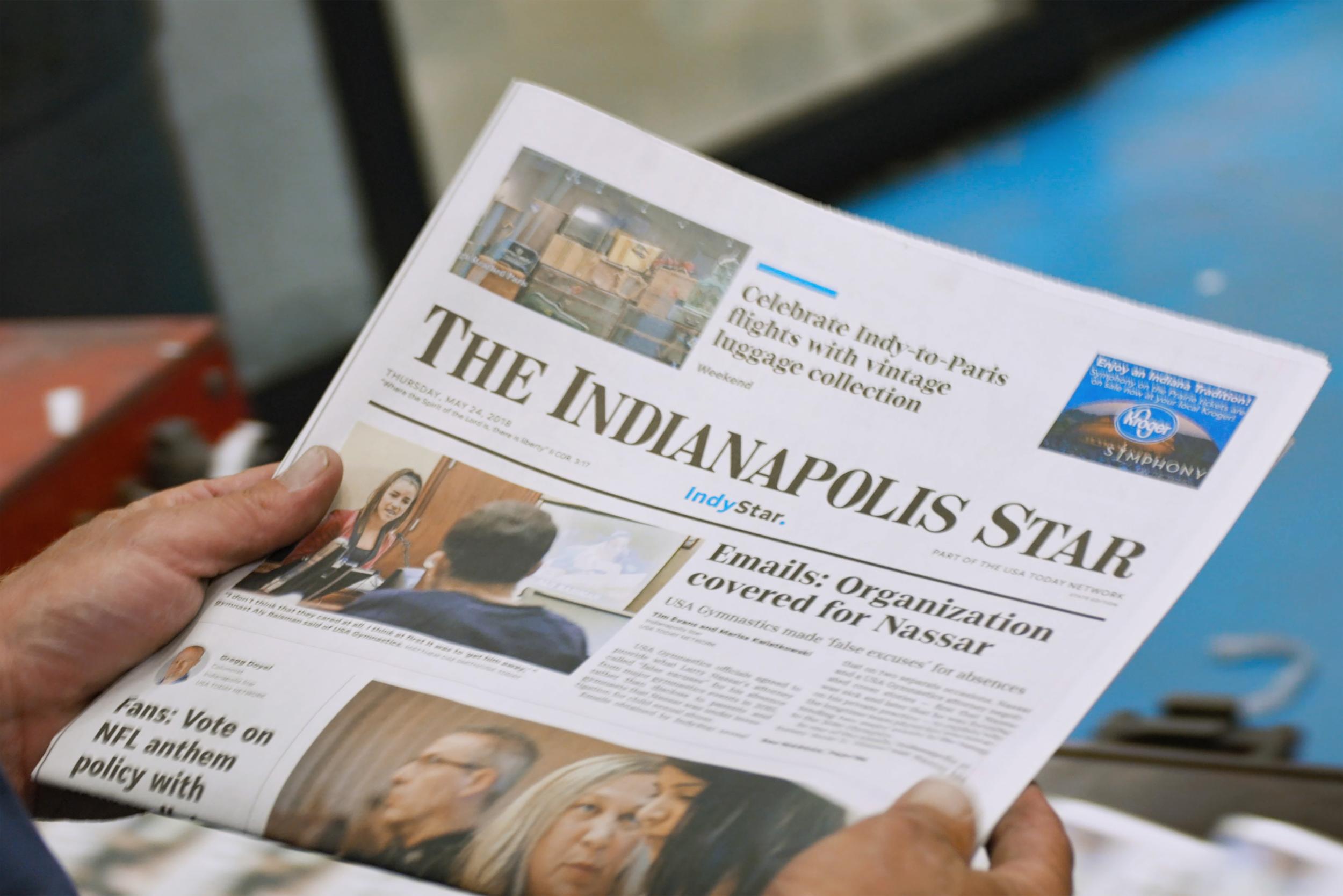
Despite the vast numbers, Denhollander says there are likely many more women out there who have not shared their stories. “I think we’ve only seen the tip of the iceberg,” she says. “I think there are thousands. Larry was abusing multiple children and women every day for at least 30 years. He abused children at the high school, at his home, at his clinical practice, in USA Gymnastics. I don’t think we have any idea how bad it is and I don’t think we ever will.”
Investigations into the way in which USA Gymnastics, the US Olympic Committee and the FBI handled the allegations are still being conducted by the US Department of Justice. Cohen and Shenk were refused interviews with representatives of USA Gymnastics.
Despite the premise of the documentary, the directors believe the film is ultimately hopeful, as it shows what can happen when people come together to create change. Denhollander agrees: “I think that’s important for people to realise,” she says. “One voice couldn’t do this. One voice didn’t do all of this. It was everybody.”
Athlete A will be available to watch on Netflix from Wednesday 24 June.
If you are in need of support for sexual abuse, you can contact Rape Crisis on 0808 802 9999. The helpline is open from 12-2.30pm and 7-9.30pm every day.
Join our commenting forum
Join thought-provoking conversations, follow other Independent readers and see their replies
Comments